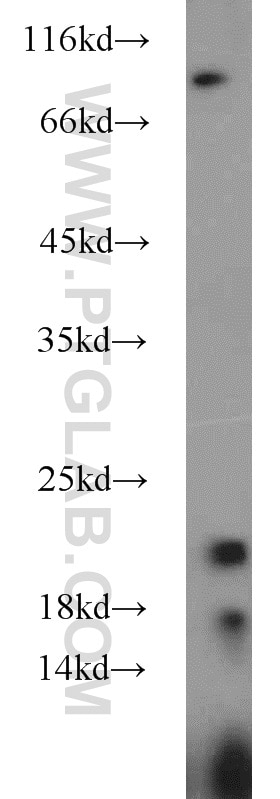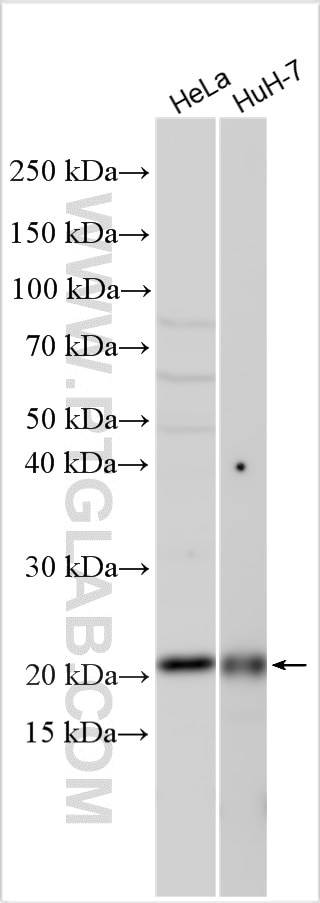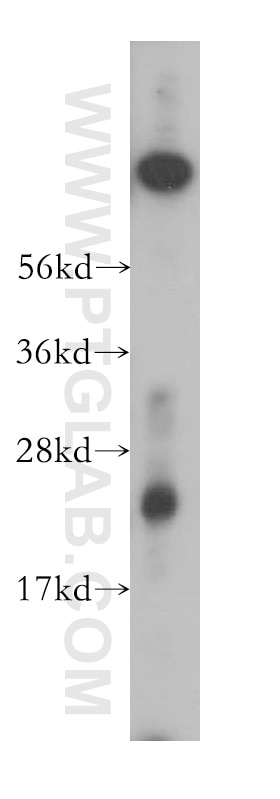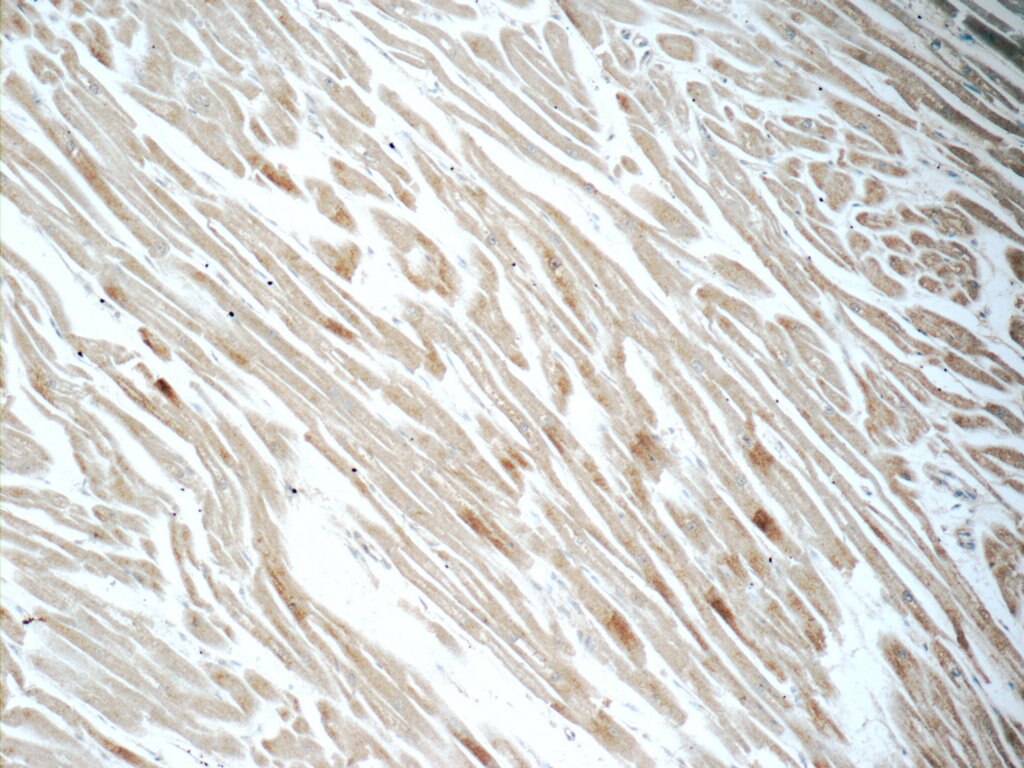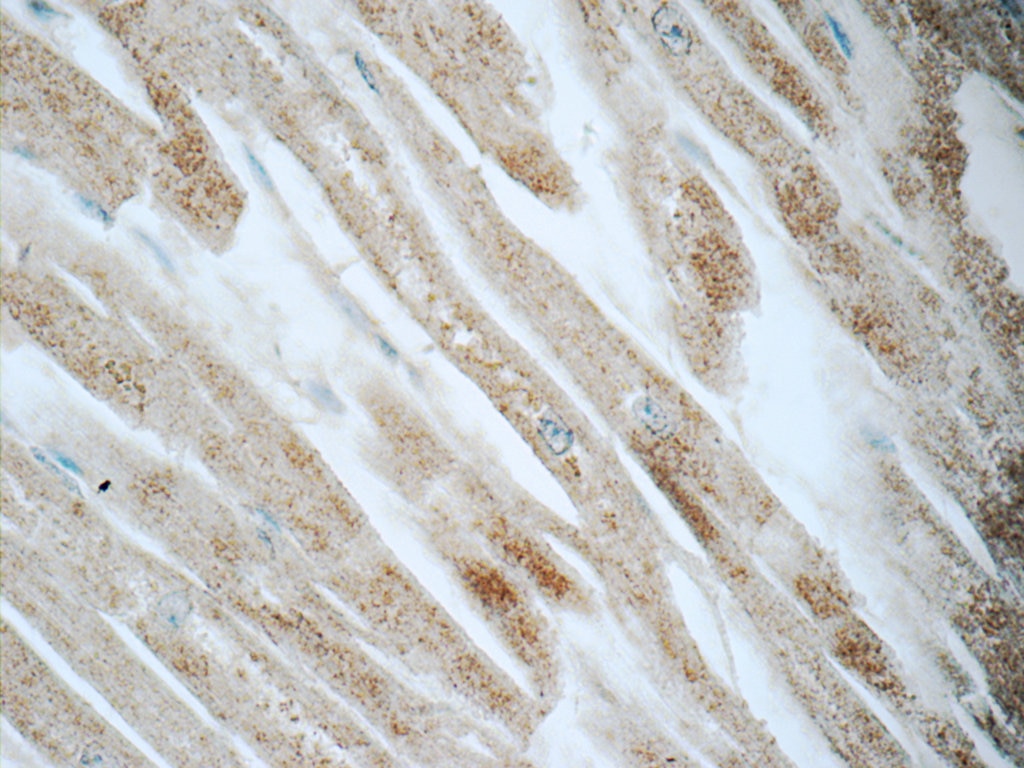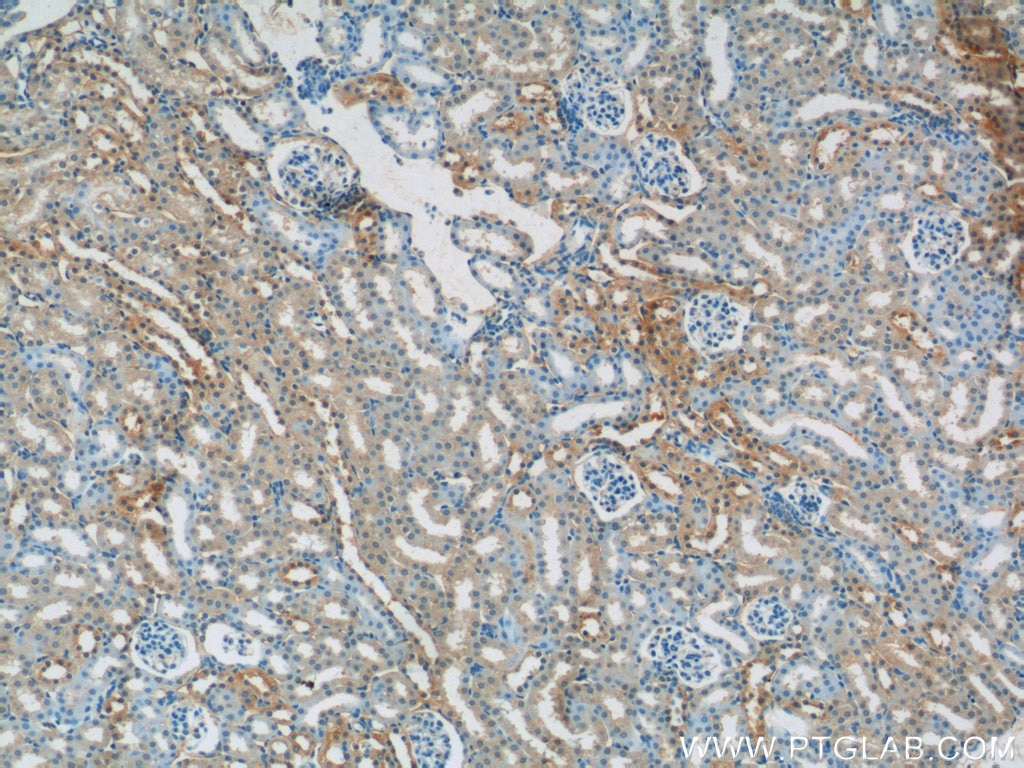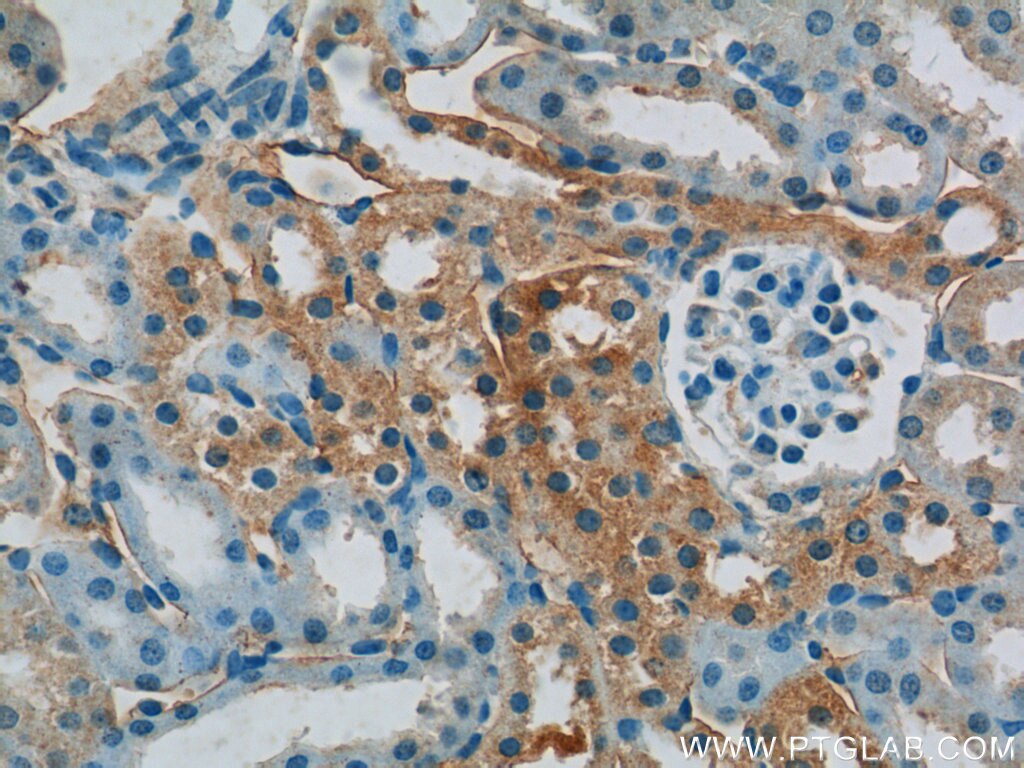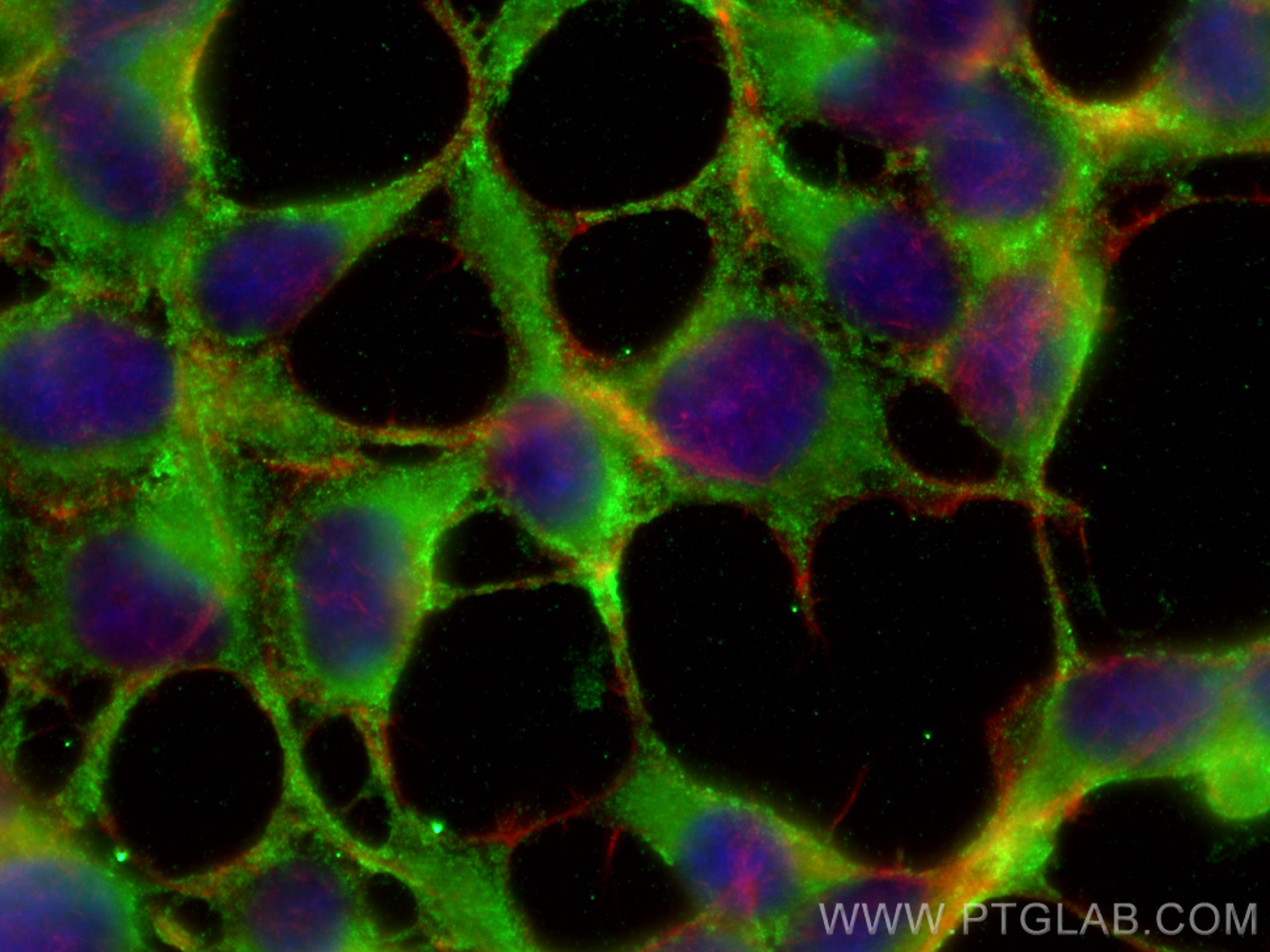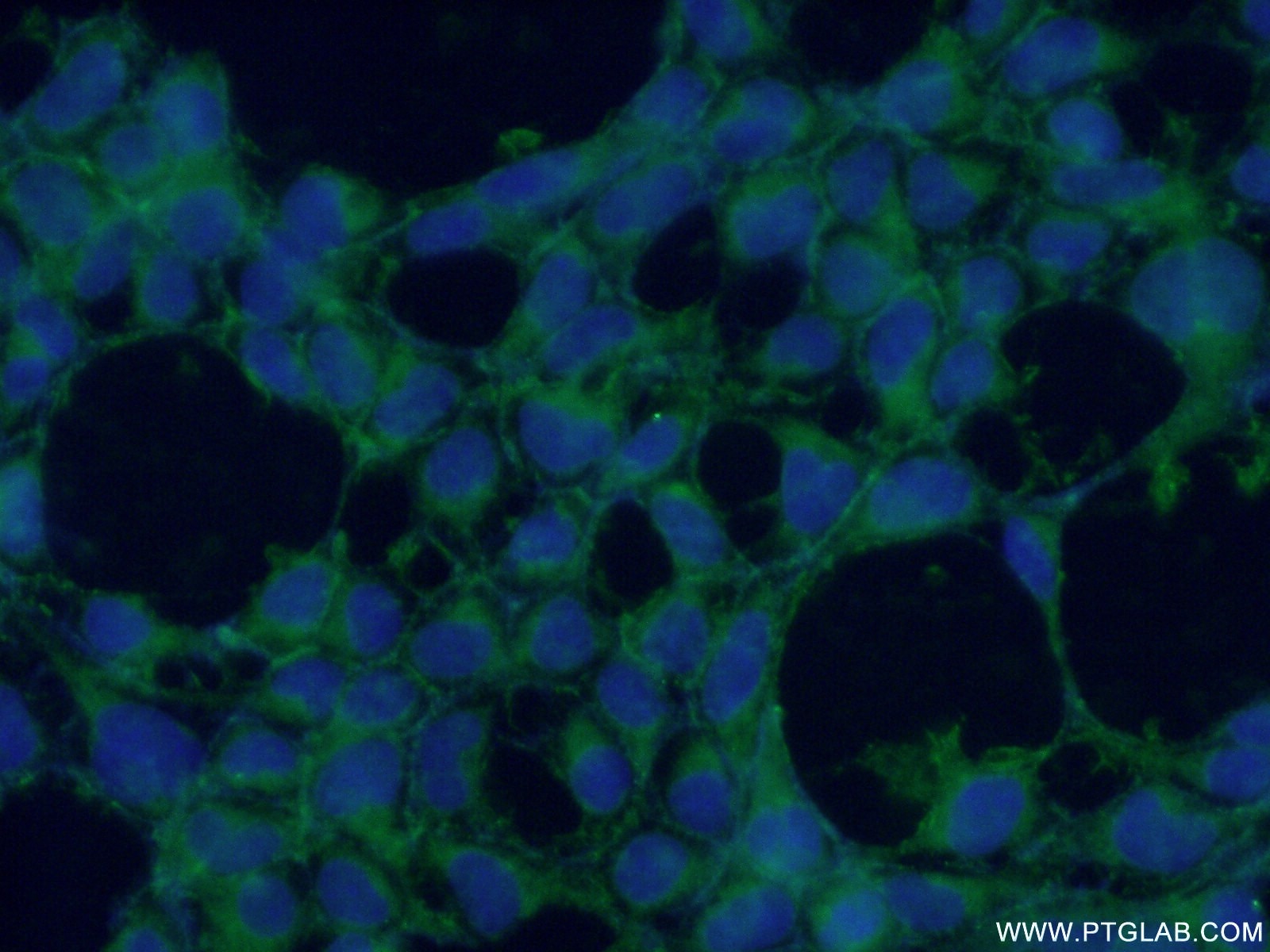- Phare
- Validé par KD/KO
Anticorps Polyclonal de lapin anti-CYPC
CYPC Polyclonal Antibody for WB, IF, IHC, ELISA
Hôte / Isotype
Lapin / IgG
Réactivité testée
Humain, rat, souris
Applications
WB, IHC, IF/ICC, ELISA
Conjugaison
Non conjugué
N° de cat : 10287-2-AP
Synonymes
Galerie de données de validation
Applications testées
| Résultats positifs en WB | cellules HeLa, cellules HEK-293, cellules HuH-7, tissu cardiaque de souris |
| Résultats positifs en IHC | tissu cardiaque humain, tissu rénal de souris il est suggéré de démasquer l'antigène avec un tampon de TE buffer pH 9.0; (*) À défaut, 'le démasquage de l'antigène peut être 'effectué avec un tampon citrate pH 6,0. |
| Résultats positifs en IF/ICC | cellules HEK-293, |
Dilution recommandée
| Application | Dilution |
|---|---|
| Western Blot (WB) | WB : 1:500-1:3000 |
| Immunohistochimie (IHC) | IHC : 1:20-1:200 |
| Immunofluorescence (IF)/ICC | IF/ICC : 1:200-1:800 |
| It is recommended that this reagent should be titrated in each testing system to obtain optimal results. | |
| Sample-dependent, check data in validation data gallery | |
Applications publiées
| KD/KO | See 1 publications below |
| WB | See 6 publications below |
Informations sur le produit
10287-2-AP cible CYPC dans les applications de WB, IHC, IF/ICC, ELISA et montre une réactivité avec des échantillons Humain, rat, souris
| Réactivité | Humain, rat, souris |
| Réactivité citée | Humain, souris |
| Hôte / Isotype | Lapin / IgG |
| Clonalité | Polyclonal |
| Type | Anticorps |
| Immunogène | CYPC Protéine recombinante Ag0209 |
| Nom complet | peptidylprolyl isomerase C (cyclophilin C) |
| Masse moléculaire calculée | 23 kDa |
| Poids moléculaire observé | 23 kDa |
| Numéro d’acquisition GenBank | BC002678 |
| Symbole du gène | PPIC/CYPC |
| Identification du gène (NCBI) | 5480 |
| Conjugaison | Non conjugué |
| Forme | Liquide |
| Méthode de purification | Purification par affinité contre l'antigène |
| Tampon de stockage | PBS avec azoture de sodium à 0,02 % et glycérol à 50 % pH 7,3 |
| Conditions de stockage | Stocker à -20°C. Stable pendant un an après l'expédition. L'aliquotage n'est pas nécessaire pour le stockage à -20oC Les 20ul contiennent 0,1% de BSA. |
Informations générales
Cyclophilin C also named as peptidyl-prolyl cis-trans isomerase C(PPIC), is expressed in several bone marrow (BM) hematopoietic progenitors and in T‐cell precursors(PMID: 33864384). CYPC/PPIC catalyze the cis-trans isomerization of proline imidic peptide bonds in oligopeptides and accelerate the folding of proteins. Similar to other PPIases, this protein can bind immunosuppressant cyclosporin A. In addition, CYPC/PPIC is involved in many biological processes, including mitochondrial metabolism, REDOX and inflammation, as well as related diseases and conditions, such as ischemia-reperfusion injury, AIDS and cancer.
Protocole
| Product Specific Protocols | |
|---|---|
| WB protocol for CYPC antibody 10287-2-AP | Download protocol |
| IHC protocol for CYPC antibody 10287-2-AP | Download protocol |
| IF protocol for CYPC antibody 10287-2-AP | Download protocol |
| Standard Protocols | |
|---|---|
| Click here to view our Standard Protocols |
Publications
| Species | Application | Title |
|---|---|---|
J Biol Chem The isomerase active site of cyclophilin A is critical for hepatitis C virus replication.
| ||
J Biol Chem Depletion of Cyclophilins B and C Leads to Dysregulation of Endoplasmic Reticulum Redox Homeostasis. | ||
PLoS One Cyclophilin C Participates in the US2-Mediated Degradation of Major Histocompatibility Complex Class I Molecules. | ||
Int J Mol Sci Pharmacological Targeting of the ER-Resident Chaperones GRP94 or Cyclophilin B Induces Secretion of IL-22 Binding Protein Isoform-1 (IL-22BPi1). | ||
ACS Chem Neurosci Furanoditerpenes from Spongia (Spongia) tubulifera Display Mitochondrial-Mediated Neuroprotective Effects by Targeting Cyclophilin D. | ||
Front Physiol Extracellular cyclophilins A and C induce dysfunction of pancreatic microendothelial cells |
